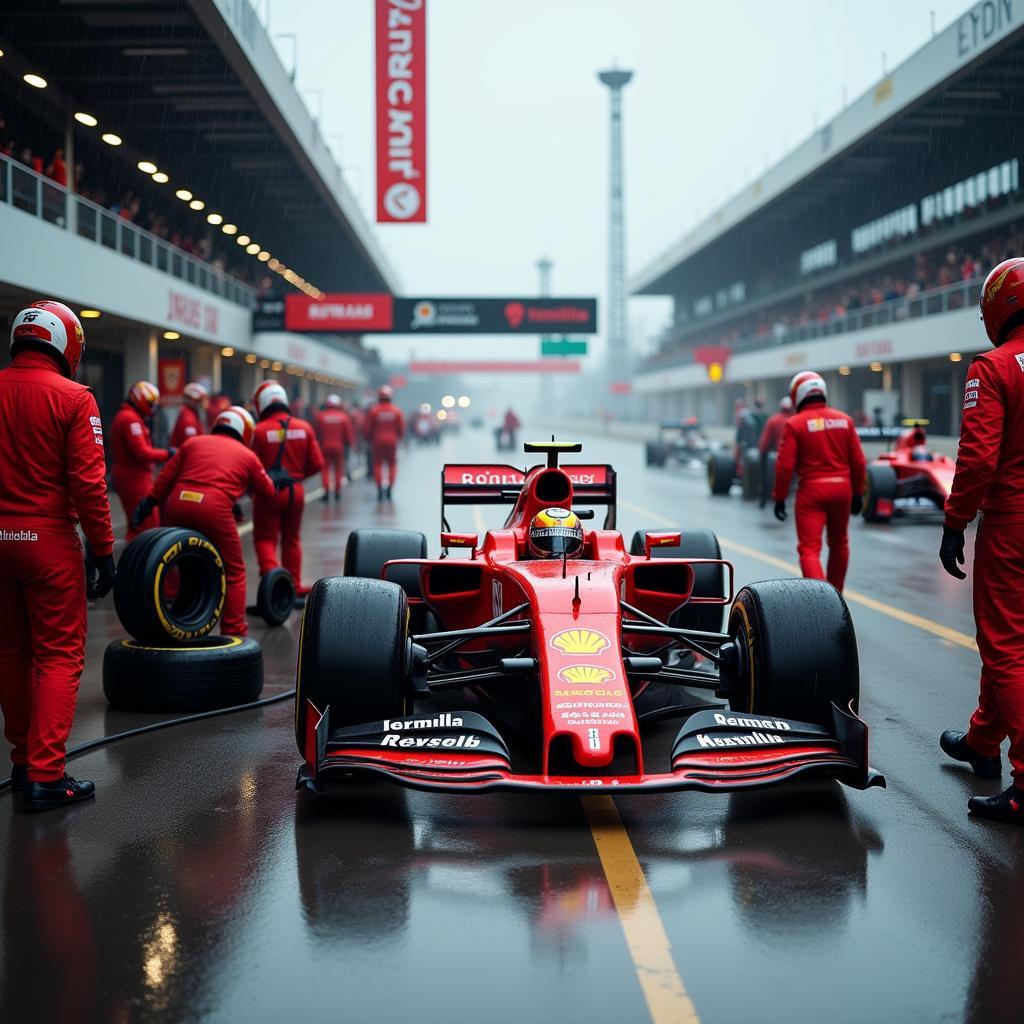Weather’s Impact on F1 Racing: How It Adds Unpredictability
October 20, 2024From the searing heat of Bahrain to the unpredictable showers at Silverstone, weather plays a crucial role in the outcome of Formula 1 races. While drivers and teams meticulously prepare for every eventuality, the capricious nature of weather can make for thrilling races and unexpected outcomes.
The Science Behind Weather’s Influence
Beyond the obvious impact of rain, understanding how weather affects F1 performance involves delving into the intricate relationship between tires, aerodynamics, and engine performance.
Tire Performance: Wet weather throws a curveball with reduced grip levels. This necessitates the use of specialized rain tires designed to displace water and maintain traction. Drivers need to be extra cautious, as braking distances increase and the car’s handling becomes less predictable.
Aerodynamics: F1 cars are meticulously designed to maximize downforce, essentially sucking the car onto the track for increased grip at high speeds. However, rain disrupts airflow, reducing downforce and making the cars more unstable, especially in corners.
Engine Performance: Air density, affected by temperature and humidity, plays a vital role in engine performance. Cooler, denser air allows for more efficient combustion, boosting power output. This is why races in cooler climates or under overcast skies often see faster lap times.
Rain: The Great Equalizer
Perhaps the most dramatic weather factor is rain. A sudden downpour can transform a straightforward race into a strategic chess match. Teams need to make split-second decisions regarding tire changes, pit stops, and whether to gamble on intermediate tires or commit to full wets.
 F1 pit stop during rain
F1 pit stop during rain
A classic example of rain’s impact is the 2008 British Grand Prix. Lewis Hamilton, driving masterfully in challenging wet conditions, secured his first-ever F1 victory. The race showcased how rain can level the playing field, rewarding driver skill and strategic decision-making over sheer car performance.
Wind: An Unseen Force
While less visually impactful than rain, wind can significantly influence F1 races. Gusty conditions can destabilize cars, particularly in high-speed corners and on straights. Drivers need to be constantly alert, making minute adjustments to their steering and throttle inputs to compensate for the wind’s unpredictable nature.
 F1 car in wind tunnel
F1 car in wind tunnel
Crosswinds, blowing across the track, are particularly challenging. They can push the car off-line, forcing drivers to react quickly to avoid going off track or colliding with other cars.
Heat: Pushing Cars and Drivers to the Limit
Extreme heat poses its own set of challenges in F1. High track temperatures lead to increased tire wear, making tire management a crucial aspect of the race. Drivers need to find the right balance between pushing for lap times and conserving their tires to avoid late-race punctures or excessive tire degradation.
Furthermore, heat takes a toll on driver performance as well. The extreme temperatures inside the cockpit, often exceeding 50 degrees Celsius (122 degrees Fahrenheit), test the physical and mental limits of even the fittest athletes. Dehydration, fatigue, and concentration lapses become major concerns.
Conclusion
Weather is an inseparable element of Formula 1 racing, injecting an element of unpredictability and excitement into every Grand Prix. Whether it’s rain, wind, heat, or a combination of these factors, weather keeps drivers on their toes, challenges teams to adapt their strategies, and often leads to unforgettable races.
Understanding how weather affects F1 adds another layer of appreciation for the complexity of the sport. It highlights the skill, courage, and adaptability required of drivers and teams to navigate the ever-changing conditions and emerge victorious.
For any assistance or inquiries, please contact us:
Phone: 0915117113
Email: [email protected]
Address: Tổ 3 Kp Bình An, Phú Thương, Việt Nam, Bình Phước 830000, Việt Nam
Our dedicated customer support team is available 24/7 to assist you.